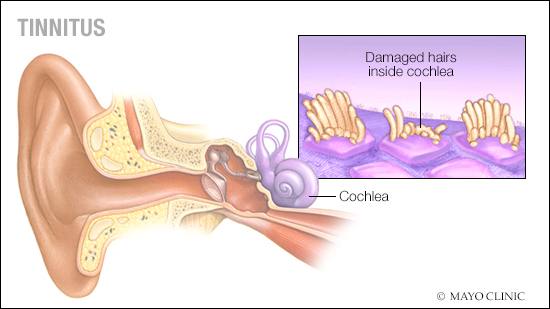Tinnitus is a prevalent auditory condition that affects millions of people worldwide, manifesting as the perception of sound without any external auditory stimulus, like ringing, buzzing, or hissing. While the exact etiology of tinnitus remains unclear, it is widely believed to stem from damage to the inner ear's hair cells responsible for detecting sound waves. Such damage may result from exposure to loud noise, aging-related hearing loss, or certain medications.

Unfortunately, there is currently no cure for tinnitus. However, there are treatments that can help alleviate the symptoms. One such treatment is low-level laser therapy (LLLT), also known as cold laser therapy. LLLT is a non-invasive treatment that uses low-level lasers or light-emitting diodes (LEDs) to stimulate cellular function. The light is applied directly to the skin, and the energy from the light is absorbed by the cells, which then triggers a biochemical response.

There is growing evidence to suggest that LLLT may be beneficial for people with tinnitus. For example, a study published in the journal Photomedicine and Laser Surgery in 2014 investigated the effectiveness of LLLT in reducing the severity of chronic tinnitus. The study involved 68 patients who were divided into two groups. One group received LLLT, while the other group received a placebo treatment. The LLLT group showed significant improvement in tinnitus severity compared to the placebo group. The authors concluded that LLLT may be a promising treatment option for chronic tinnitus.

Another study published in the Journal of Clinical and Diagnostic Research in 2018 found that LLLT was effective in reducing tinnitus severity and improving hearing in patients with noise-induced hearing loss. The study involved 60 patients who were divided into two groups. One group received LLLT, while the other group received a placebo treatment. The LLLT group showed significant improvement in tinnitus severity and hearing compared to the placebo group. The authors concluded that LLLT may be a safe and effective treatment option for patients with noise-induced hearing loss and tinnitus.

The exact mechanism by which LLLT works for tinnitus is not yet fully understood. However, it is believed that LLLT may help reduce tinnitus by improving cellular function in the inner ear. The inner ear contains hair cells that are responsible for converting sound waves into electrical signals that are sent to the brain. Damage to these hair cells can result in tinnitus. LLLT may help improve the function of these hair cells and reduce tinnitus symptoms.


